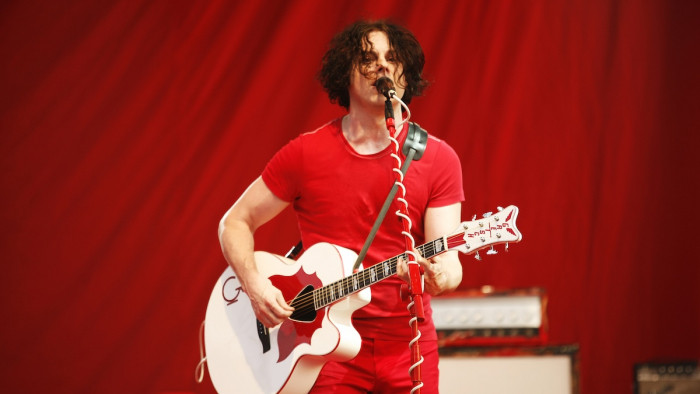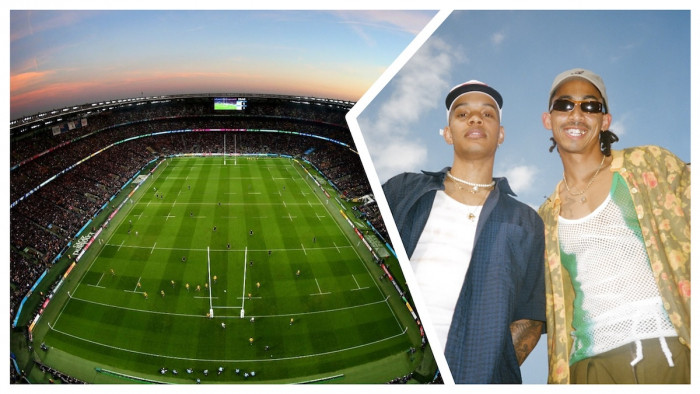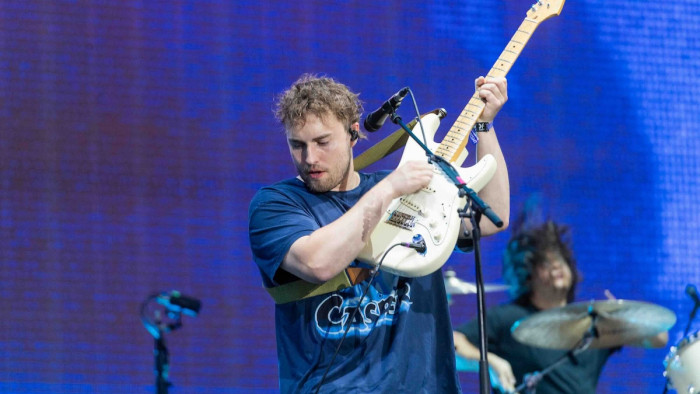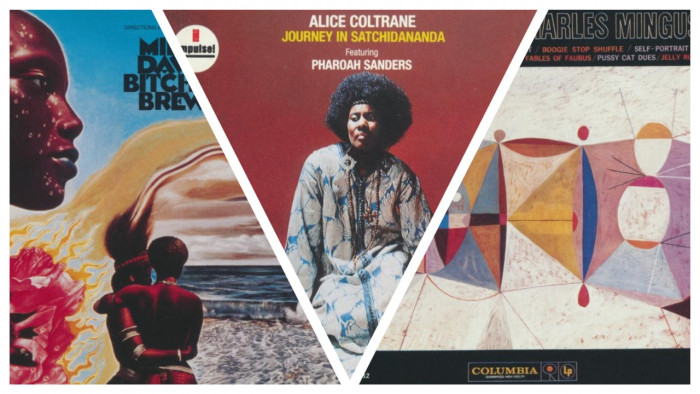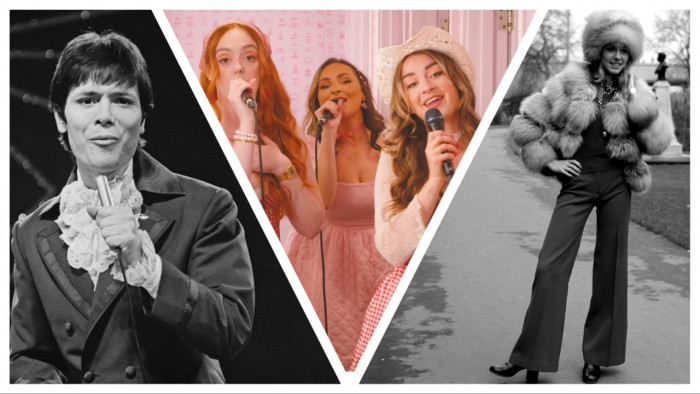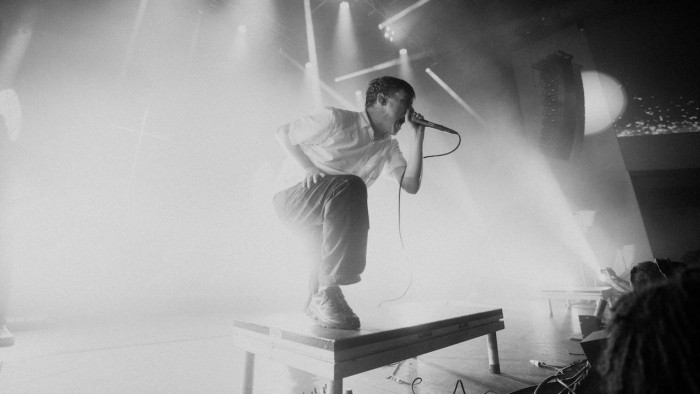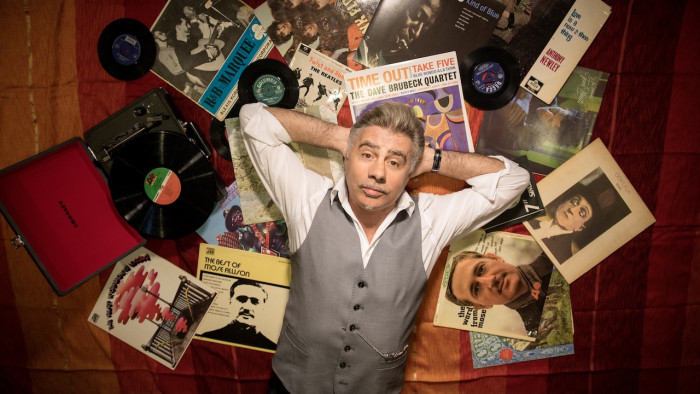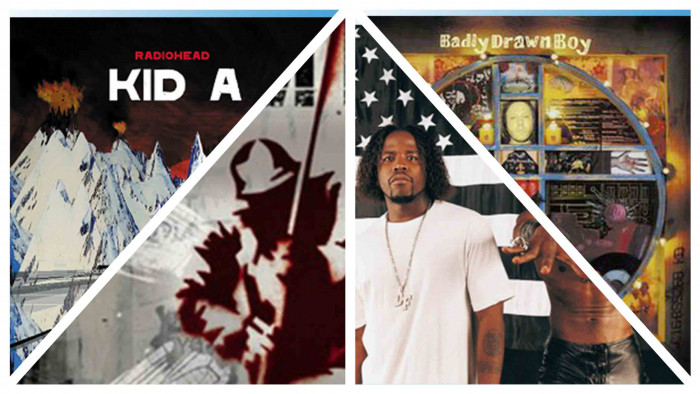How OutKast's genuine friendship opened up the imaginations of young black men
"We were brothers before this, and we’re going to be brothers for life"


“I met this dude, we just bonded and connected like brothers,” Antwan Patton once said to his brother, James. Throughout the OutKast lore, which stretches far beyond the duo’s music, there are enough clues which indicate the type of friendship these two men share beyond the public eye. OutKast certainly weren’t the first representation of black male friendship in music, especially not if A Tribe Called Quest has anything to say, nor The Jackson Five for that matter. But few are demanded as much as OutKast, and although the lifelong fan in me yearns for a reunion album, I remember that some acts die even if they physically remain.
Whenever I could evade the incessant dial tones of pre-Broadband internet, I’d sit for hours watching videos, VH1 Driven documentaries and interviews that weren’t available on MTV Base here in the UK. “If yours was like most such friendships, one measure of your intimacy was a willingness to talk unguardedly about your most immodest plans for the future,” Jonathan Dee wrote in an interview with OutKast for the New York Times in 2006, following the release of Idlewild, the duo’s 1930s bootlegger musical.
Believe me, I’m just as curious to know what an OutKast album would sound like in a world where the lines of realism and mysticism can be blurred by the internet. When I reread this quote during my research, I imagined to myself, what happens when you give space to allow black creativity to dream beyond worldly limitations? The imaginations of both Big Boi and Andre 3000 allowed others like myself to do just that - it’s one of the reasons why OutKast meant so much to so many. They could reach people 4,000 miles away and beyond, from their home in Atlanta.
There have always been rumours of bad blood, but to suggest any relationship is without those is somewhat naive. But in the arena of hip-hop where friendships are often so disposable, Andre and Big Boi’s ability to maintain theirs, two dope boys in a Cadillac, challenges many people’s ideas of what a kinship of their nature should look like.

OutKast performing in New Orleans back in 2014
No doubt their personalities opposed each other on record, as was their nature from the day they met at Tri-Cities High School, but that was always a result of two different backgrounds which were caricatured in the early scenes of Idlewild. However, even when times were particularly sour, they lamented their woes together, most notably their anecdotal baby mother ones on ‘Ms. Jackson’. It was also at this point that their imagination had captured the world, especially as it was their first US Billboard number one hit.
Although Benjamin’s mother, Sharon, remembers sense of style being born before he met Patton in their 2004 Driven documentary, witnessing their transformation over the years, it was always clear that the foundation of their friendship has been their individuality. The very name of their third album, Aquemini, is an ode to the two very contrasting personalities that make up OutKast, and that’s fundamentally where the surrealism of their act lies. If the two of them were a river, it was as early on as ATLiens that it was evident they’d eventually fork off, as they both shared the same principles but had different approaches.
Maybe that’s where we failed as fans, we forgot that sometimes we can’t control the forces of nature. In the moments where it mattered, we were given clear indications that this was a friendship that would exist, even if OutKast no longer did. And reserving all opinions on the success of Idlewild, it was in some ways, a fitting eulogy to the lives of Big Boi and Andre 3000, which were as wild as PJ and Rooster’s.
There’s a lot to be said for the analogies that can be found in Japanese anime also, notably in the titular characters of Hunter x Hunter, Gon and Killua, given how each of them possess fierce individuality but share an even more enthralling dual personality which combines both their strengths. Even though Gon and Killua went their separate ways, with writer Yoshihiro Togashi yet to finish writing the anime, fans are certain the characters’ paths will converge once again.

The duo on stage at Bestival 2014
But perhaps that’s always been the underlying problem with how OutKast has been perceived. On wax, it was always felt as though Andre and Big Boi were competing, but it was not in the name of one-upmanship, rather as though they fed off one another’s energy. It’s a synergy that was always morphed and reinvented in so many ways. Just with the sheer theatrical nature of the duo’s videos, and the harmony they always shared as though they were actors on screen, it wouldn’t have been made possible without a ritualistic understanding of OutKast’s goals and needs. It also happens to be no coincidence that whenever they came back together to record an album, the sounds always seemed to be taken to another level and become more expansive.
When ‘Southernplayisticadillacmusik’ was released in ‘94, OutKast’s videos were shot in a style not too dissimilar from a John Singleton coming-of-age hood film. However, as soon as they were introduced to new worlds and further resources, courtesy of mentor LA Reid’s LaFace Records, the limitations of their non conformative visions were set free, allowing for more creatively expressive videos such as ‘Rosa Parks’, later followed by ‘Prototype’ and ‘Hey Ya’.
Whatever OutKast symbolised, it’s not impossible to imagine that they were always a strong representation of a healthy black male friendship, and to say otherwise would be revisionist. And to be honest, while they were a rarity in themselves, they possessed an enchanting presence that allowed the world around to see what happens when you allow black men the freedom and space to express and tap into the best parts of themselves. It allowed Big Boi and Andre to create a colourful dimension of hip-hop that brought to life it’s magic surrealism.
It’s not without its impact either. Kendrick Lamar is one of a few artists who have been able to use their environment as a canvas for imagination, to be able to tell vivid stories that challenge our ideas of the metaphysical. Where OutKast is an obvious inspiration is not in the former’s voice alone, but in ‘Black Hippy’ also. They inspired weird kids in complex settings to see beyond dire horizons, and with each Kendrick Lamar release, those dreams are visualised, as witnessed on DAMN..

OutKast performing at Grant Park in 2014
Like all great star acts, it was never just about the two of them, but the extended family of friends that have been with them since back when they were struggling to make a name for themselves. A recurring supporting cast over the years that has included members of Organized Noize and Goodie Mob always remained OutKast’s hip-hop anchor to their ever flowing imagination. Imagination is a fragile and precious commodity and where black people are already handicapped in many areas of life, the symbolism of a group such as OutKast isn’t lost on me.
Perhaps one of the reasons why OutKast’s return is so longed for is the dynamism and friendship Big Boi and Andre 3000 share. Black male friendships aren’t a rarity by any means, we see them in abundance on screen and hyperbole wouldn’t serve us here, but they are important when performed and consumed through the vehicle of mainstream media. It was clear from the release of ATLiens that the two had already begun to veer off on their own separate trajectories, and it’s no surprise that after Idlewild and years of personal growth, they’d grown sick and tired of performing a friendship that had evolved.
It isn’t hard to imagine such a relationship existing in hip-hop. As with life, there aren’t many friendships we hold in our own lives that aren’t wrought with disagreements and turmoil. “We’re brothers before music. We were brothers before this, and we’re going to be brothers for life,” Big Boi once said in an interview with HuffPost Live.
I found similarities in the way Idlewild concluded and how the rappers have described their relationship since OutKast died as an iconic, boundary-pushing rap group. And just as Percy and Rooster went down their separate paths in the closing scenes of Idlewild, Big Boi and Andre did the same - although it’s the latter who’s buying the other’s records and playing them to his kids. Ultimately, maybe the lesson Outkast’s death has taught us that we needn’t fear being in control of our own mortality, especially when your life is played out in the public eye. And to quote Big Boi on Morris Brown, one of OutKast’s last hits: “Two dope boys in a Cadillac still, ‘Kast the crown on ya Cadillac Seville.”
(Images: Rex)
